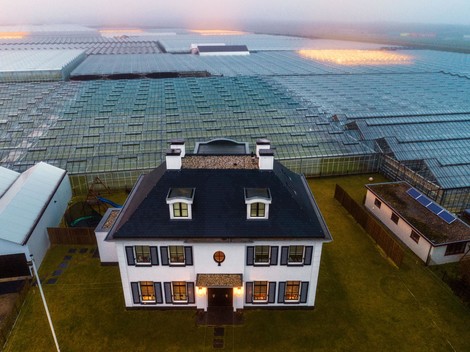Your podcast discovery platform
Curious minds select the most fascinating podcasts from around the world. Discover hand-piqd audio recommendations on your favorite topics.

piqer for: Globalization and politics Global finds
I am an Australian freelance journalist focussing on conflicts, politics, and warzones around the world. I have been working as a journalist for over 5 years, having reported from Australia, Germany, China, Egypt, Palestine, and Ukraine. I am especially interested in the way that new technologies are being used in conflict zones in unexpected and often disturbing ways. During my time working as a journalist, I also co-founded open-source war reporting site Conflict News.
This Tiny Country Feeds The World
In the 1960s, a large amount of alarmist literature with titles like 'The Population Bomb' and 'The Limits to Growth', predicted that the world's population would soon outstrip its ability to produce enough food to feed everyone, and trigger a societal collapse.
These predictions, as we now know, did not come to pass. While the population of the Earth has increased by several billion since the 1960s, the actual number of people who suffer from food insecurity has increased. However, the number of people dying from famine has decreased. Indeed, the primary factor these books and simulations underestimated was human ingenuity. Through technology, education, improved governance and better farming techniques, agriculture has seen massive increases in productivity over the last 50 years.
But with the world's population expected to peak this century at around 10 billion, the job is not done yet – billions more will need to be fed, and yet more food grown, as climate change makes some regions less fertile.
Enter the Netherlands – a small, low-lying country in northern Europe, but now one of the world leaders in a new green revolution. It is here that we can get a glimpse of what the future of global farming may need to look like in a 10 billion-person world. Despite its geographical disadvantages, the Netherlands has turned itself into an agricultural superpower, primarily due to its continued embrace of new farming technology. Combining drones, new and unique species, intensive urban farming, computer monitoring and endless fields of greenhouses, this country shows that once again human ingenuity can triumph over global famine.
Frank Viviano's article for National Geographic is a compelling read, coupled with amazing visuals explaining the technology used by the Dutch, as well as the scale of their agricultural ambitions. Despite all of the doom and gloom in the media, this article is worth a read if only for giving a more optimistic take on a potential future.
Stay up to date – with a newsletter from your channel on Global finds.
